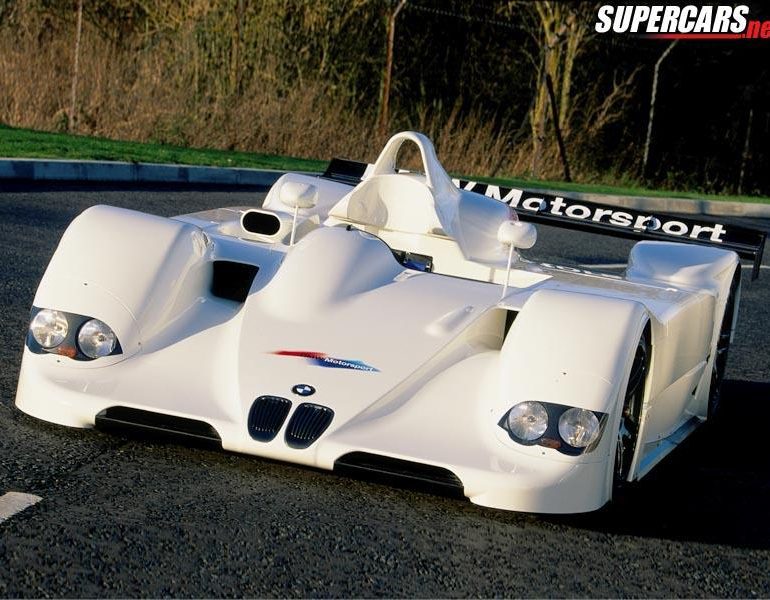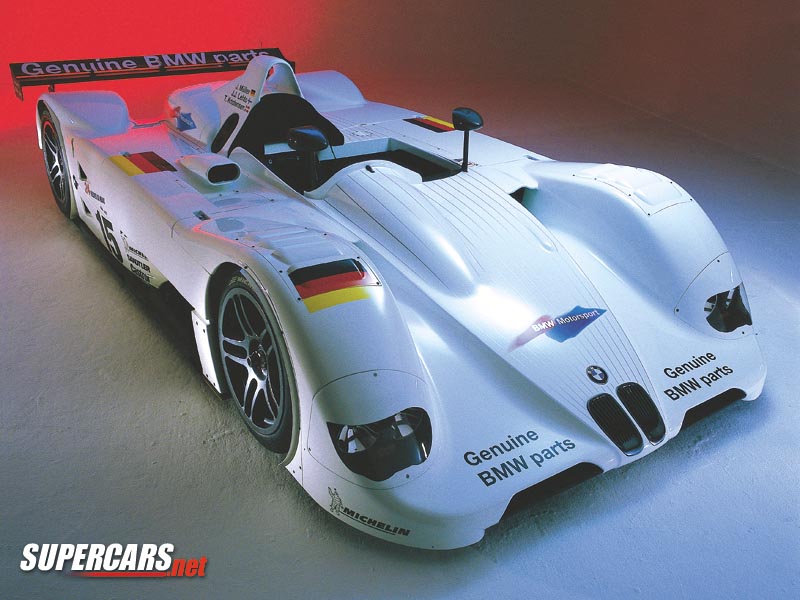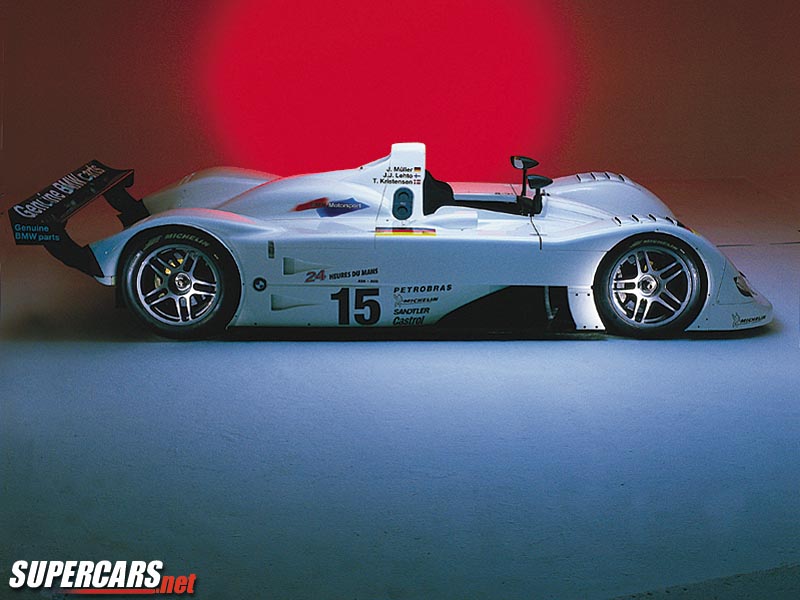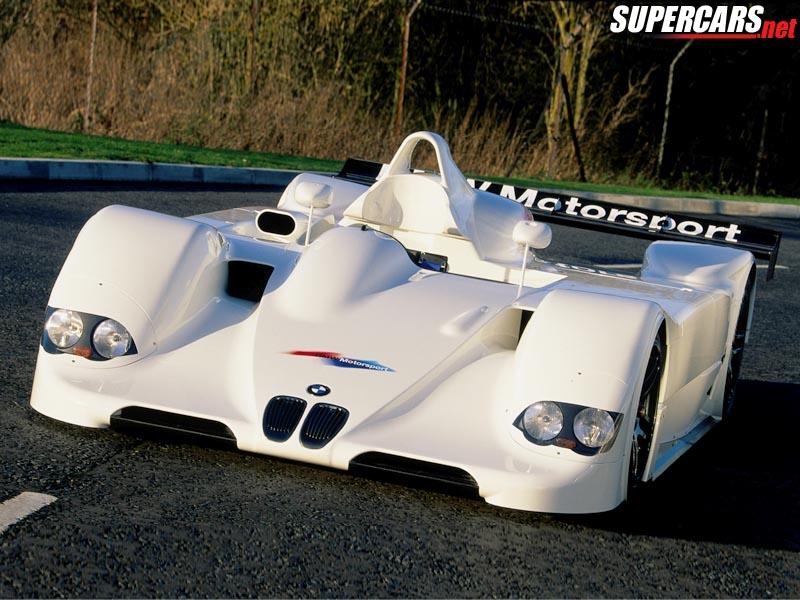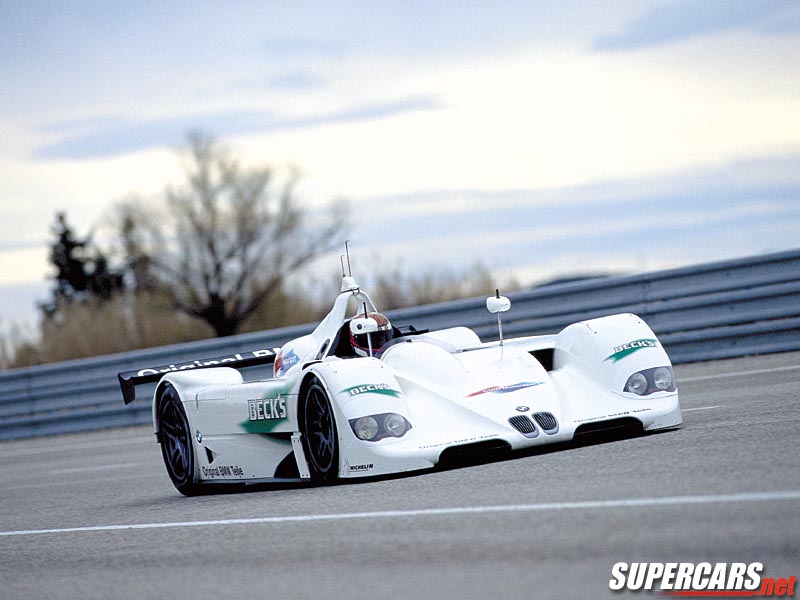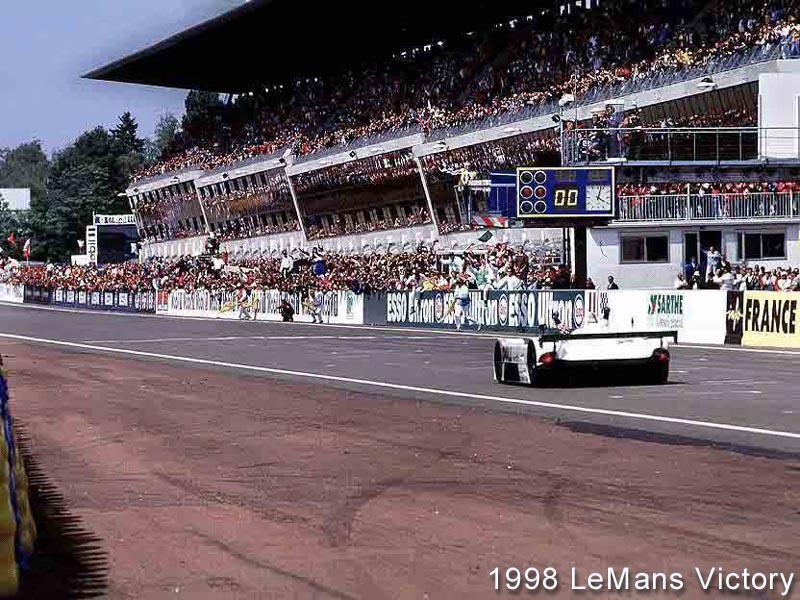1999 BMW LMR
Press release, 11/13/2000 – The chequered flag comes down on one of the most successful sports cars ever for the last time
Munich. The end of its second season in the American Le Mans Series (ALMS) marks the retirement of one of the most successful open-topped sports cars of recent decades. Triumphs before capacity crowds, action-packed races and happy endings – the career of the two BMW V12 LMRs has been a spectacular one. BMW has celebrated seven victories with this car, including a first in the 24 Hours of Le Mans. Also on the record after 18 racing engagements are five second and eight third places. Only twice did the BMW drivers just miss the podium – despite the fact that in 2000 BMW has been fielding a modified version of last year’s model against the new cars of a powerful competition.
”Our decision,” states BMW Motorsport Director Dr Mario Theissen, ”takes effect immediately.” BMW could take in another race in Adelaide, Australia on New Year’s Eve: “It’s bound to be a spectacular event even though the titles are already accounted for. However, December will be dedicated to the preparations for the coming season. The schedule, for developing a competitive car is short as it is, following our decision at the end of October, to compete with the BMW M3 in the ALMS GT category.”
Highlights of the BMW V12 LMR’s career
1999 was its bumper year: BMW won its debut event with the new sports car – the Sebring 12 Hours in Florida, USA. The triumphant team numbered Tom Kristensen (DK), JJ Lehto (FIN) and Jörg Müller (D). In June, Yannick Dalmas (F), Pierluigi Martini (I) and Joachim Winkelhock (D) won the Le Mans 24 Hours against arguably the most powerful rivals in the history of this event. With co-driver Steve Soper (GB), Lehto went on to claim three further victories in the ALMS.
BMW Motorsport Director Gerhard Berger says: “An old racing rule says that a good looking car is also a fast one. This is indeed the case with the BMW V12 LMR. Its successful design founded an entirely new generation of open-top sports cars and it was fast, reliable, fuel efficient, driveable and aerodynamically effective from the very beginning. It was developed by outstanding technicians, fielded by an excellent team and driven by very good drivers.” The car was developed jointly with Formula 1 partners WilliamsF1, and Charly Lamm was the man in charge of all engagements on the part of the team of mechanics and technicians from BMW Motorsport in Munich and Schnitzer Motorsport of Freilassing.
The second year brings further triumphs
The 2000 season proved difficult from the start. All the more remarkable in that light were the two victories which Lehto/Müller claimed in Charlotte and Silverstone. Jörg Müller led the drivers’ rankings until the ninth race of the season in Road Atlanta.
BMW had concentrated all their resources on the Formula 1 debut and the 1999 cars redeployed for the ALMS. Various changes in the regulations, above all in the aerodynamic sector, could only have been counterbalanced by the development of an entirely new sports car. The BMW V12 LMR were disadvantaged in driveability and handling compared to 1999. The set-up work proved to be extremely difficult.
But the cars managed to uphold one key strength: their reliability. Only twice was a BMW V12 LMR forced to retire due to a technical fault – Lehto in the 1999 Le Mans while in the lead ahead of his ultimately victorious team-mates, and Jean-Marc Gounon (F) at Silverstone in 2000.
1999 BMW LMR Gallery
See full 1999 BMW LMR Gallery here
In Detail
| built at | Munich, Germany |
| engine | 60 Degree V12 |
| valvetrain | 4-Valves / Cyl |
| fuel feed | Electronic Injection |
| displacement | 5990 cc / 365.5 in³ |
| compression | 13.0:1 |
| power | 432.5 kw / 580 bhp @ 6500 rpm |
| specific output | 96.83 bhp per litre |
| torque | 670 nm / 494.2 ft lbs @ 4500 rpm |
| body / frame | Carbon Fibre Monocoque |
| wheel type | OZ Magnesium |
| front tires | 33/65R-18Michelin Racing Radials |
| rear tires | 36/71R-18 Michelin Racing Radials |
| front brakes | Inner Vented Carbon Fibre Discs |
| f brake size | x 380 mm / x 15.0 in |
| r brake size | x 355 mm / x 14.0 in |
| front wheels | F 45.7 x 33.0 cm / 18 x 13 in |
| rear wheels | R 45.7 x 36.8 cm / 18 x 14.5 in |
| steering | Rack & Pinion |
| f suspension | Double Wishbones w/Inboard Eibach Springs over Sachs Dampers |
| r suspension | Double Wishbones w/Inboard Eibach Springs over Sachs Dampers |
| curb weight | 900 kg / 1984 lbs |
| wheelbase | 2790 mm / 109.8 in |
| front track | 1641 mm / 64.6 in |
| rear track | 1596 mm / 62.8 in |
| length | 4650 mm / 183.1 in |
| width | 2000 mm / 78.7 in |
| height | 1020 mm / 40.2 in |
| transmission | 6-Speed Sequential w/4-Plate Clutch |
| gear ratios | :1 |


